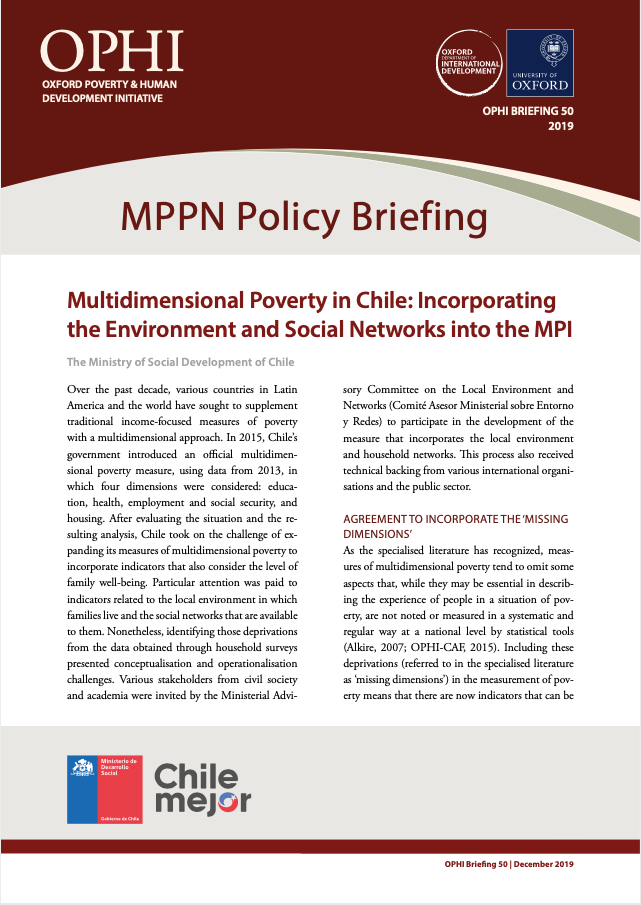Multidimensional Poverty in Chile: Incorporating the Environment and Social Networks into the MPI
Over the past decade, various countries in Latin America and the world have sought to supplement traditional income-focused measures of poverty with a multidimensional approach. In 2015, Chile’s government introduced an official multidimensional poverty measure, using data from 2013, in which four dimensions were considered: education, health, employment and social security, and housing. After evaluating the situation and the resulting analysis, Chile took on the challenge of expanding its measures of multidimensional poverty to incorporate indicators that also consider the level of family well-being. Particular attention was paid to indicators related to the local environment in which families live and the social networks that are available to them. Nonetheless, identifying those deprivations from the data obtained through household surveys presented conceptualisation and operationalisation challenges. Various stakeholders from civil society and academia were invited by the Ministerial Advisory Committee on the Local Environment and Networks to participate in the development of the measure that incorporates the local environment and household networks. This process also received technical backing from various international organisations and the public sector.
OPHI Briefing 50 is also available in SPANISH.
Citation: The Ministry of Social Development, Government of Chile. (2019). 'Multidimensional poverty in Chile: Incorporating the environment and social networks into the MPI', OPHI Briefing 50, Oxford Poverty and Human Development Initiative (OPHI), University of Oxford.



